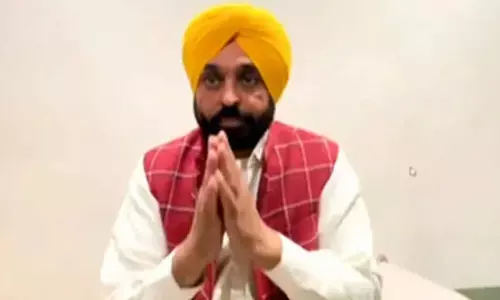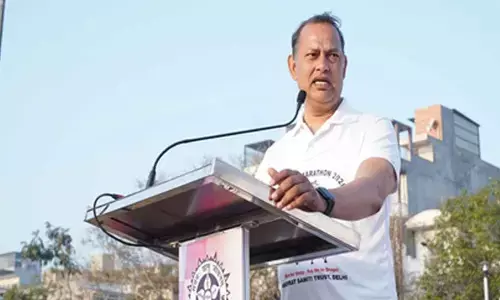The anti defection law

The anti-defection law was passed by parliament in 1985. Twenty-five years down the road, it is pertinent to trace the several modifications and to evaluate how well the law has worked.
The anti-defection law was passed by parliament in 1985. Twenty-five years down the road, it is pertinent to trace the several modifications and to evaluate how well the law has worked.
The 52nd amendment to the Constitution added the Tenth Schedule which laid down the process by which legislators may be disqualified on grounds of defection.
A Member of Parliament or state legislature was deemed to have defected if he either voluntarily resigned from his party or disobeyed the directives of the party leadership on a vote.
That is, they may not vote on any issue in contravention to the party’s whip. Independent members would be disqualified if they joined a political party.
Nominated members who were not members of a party could choose to join a party within six months; after that period, they were treated as a party member or independent member.
The law also made a few exceptions. Any person elected as speaker or chairman could resign from his party, and rejoin the party if he demitted that post.
A party could be merged into another if at least two-thirds of its party legislators voted for the merger. The law initially permitted splitting of parties, but that has now been outlawed.
Experience so far
In the 24 years of this law, complaints have been made against 62 Lok Sabha MPs. Of these, 26 were disqualified. It is pertinent to note that ten of these disqualifications were after the trust vote of July 2008 (over India-US civil nuclear co-operation).
Four cases were made against Rajya Sabha MPs (two in 1989 and two in 2008) and all were upheld. In state legislatures, up to 2004, out of 268 complaints, 113 were upheld.
Challenges and Interpretations
The anti-defection law raises a number of questions, several of which have been addressed by the courts and the presiding officers.
Does the law impinge on the right of free speech of the legislators? This issue was addressed by the five-judge Constitution Bench of the Supreme Court in 1992 (Kihoto Hollohan vs Zachilhu and others).
The court said that “the anti-defection law seeks to recognise the practical need to place the proprieties of political and personal conduct…above certain theoretical assumptions.” It held that the law does not violate any rights or freedoms, or the basic structure of parliamentary democracy.
What constitutes “voluntarily” resigning from a party? Various judgements and orders indicate that a member who publicly opposes the party or states his support for another party would be deemed to have resigned from his party. News reports may be used as evidence for this purpose.
Can the decision of the presiding officer be challenged in the courts? The law states that the decision is final and not subject to judicial review. The Supreme Court struck down part of this condition.
It held that there may not be any judicial intervention until the presiding officer gives his order. However, the final decision is subject to appeal in the High Courts and Supreme Court.
Issues for consideration
Should the law be valid for all votes or only for those that determine the stability of the government (such as the confidence and no-confidence motions)? The main intent of the law was to deter “the evil of political defections” by legislators motivated by lure of office or other similar considerations.
However, loss of membership is hardly a penalty in cases ahead of the scheduled time of general elections—as seen last year. It also loses significance if the House is likely to be dissolved.
On the other hand, the voting behaviour may be affected even on issues not related to the stability of the government. A member may be unable to express his actual belief or the interests of his constituents.
Therefore, a case may be made for restricting the law to confidence and no-confidence motions. The Dinesh Goswami Committee on electoral reforms (1990) recommended this change, while the Law Commission (170th report, 1999) suggested that political parties issue whips only when the government was in danger.
Should the law apply only to pre-poll alliances? The rationale that a representative is elected on the basis of the party’s programme can be extended to pre-poll alliances. The Law Commission proposed this change with the condition that partners of such alliances inform the Election Commission before the elections.
Should the judgement be made by the presiding officers? Several MPs had raised this issue at the time of passage of the law. The Supreme Court upheld the law in the Kihoto Hollohon judgment.
The Goswami Committee, the Election Commission and the Venkatachaliah Commission to Review the Constitution (2002) have recommended that the decision should be made by the president or the governor on the advice of the Election Commission. This would be similar to the process for disqualification on grounds of office of profit.
Should there be any additional penalties on defectors? The Venkatachaliah Commission recommended that defectors should be barred from holding any ministerial or remunerative political office for the remaining term of the House. It also said that the vote of any defector should not be counted in a confidence or no-confidence motion.
There is no ambiguity in the legality of current provisions related to these issues. Any change would require legislative action. There is, however, need for public debate on the working of the anti-defection law.








